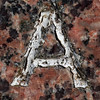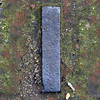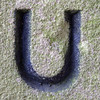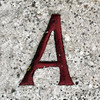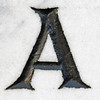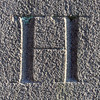Something to think about when kids come in w/school assignments and tell us they "can't use the internet" from David Warlick's 2 cents worth blog entry on March 19th:
(back in the day [my words]) ... We were using the computer as a tool to help students learn to do things that we were, by and large, still doing on paper. We were using computers to continue the paper training of our children — and these tools were pretty good at it.
Today, however, computers are THE tool. Computers and the Internet are today’s information landscape. It is where we manage commerce, communicate, play, and access information, even the information we use to look up in an almanac. Twenty-eight years ago, those sixteen kilobyte computers were useful tools for helping children develop what were still paper-based skills.
The disturbing question today is, “Does paper represent an adequate tool for learning skills related to a digital networked information world?”
If not, why are we acting like it does?
Saturday, March 31, 2007
Thing 21 -- Podcasts
Found some interesting podcasts:
The Library Channel gives news, information, and announcements forArizona State University Libraries. It includes lectures, roundtable discussions, announcements and tips in the latest trends for research libraries, recorded at ASU and released weekly.
The Kankakee Public Library Podcast broadcasts programs and events from the Kankakee Public Library.
The Johnson County Library's Writer's Place Poetry Reading Series delivers readings from locally and nationally known poets brought to the Johnson County Library in Kansas to present their work. Each reading event typically lasts an hour with two poets each month; each event is broken into two podcasts.
Hennipen County Library's TeenLinks Podcasts features audio recordings by teens for teens, including movie and book reviews and other topics of interest to teens.
Armin Brott, a nationally recognized parenting expert known as Mr. Dad has a Daddycast that provides the "knowledge, tools, encouragement, and support you need to be the kind of dad you want to be and that your family needs you to be."
Using bloglines as my web podcatcher, I added an RSS feed from the NBC5 News Podcast.
The Library Channel gives news, information, and announcements forArizona State University Libraries. It includes lectures, roundtable discussions, announcements and tips in the latest trends for research libraries, recorded at ASU and released weekly.
The Kankakee Public Library Podcast broadcasts programs and events from the Kankakee Public Library.
The Johnson County Library's Writer's Place Poetry Reading Series delivers readings from locally and nationally known poets brought to the Johnson County Library in Kansas to present their work. Each reading event typically lasts an hour with two poets each month; each event is broken into two podcasts.
Hennipen County Library's TeenLinks Podcasts features audio recordings by teens for teens, including movie and book reviews and other topics of interest to teens.
Armin Brott, a nationally recognized parenting expert known as Mr. Dad has a Daddycast that provides the "knowledge, tools, encouragement, and support you need to be the kind of dad you want to be and that your family needs you to be."
Using bloglines as my web podcatcher, I added an RSS feed from the NBC5 News Podcast.
Friday, March 16, 2007
Thing 20 -- Video Hosting / YouTube
I could spend a lot of time in YouTube, and in fact, I do subscribe to geriatric1927.
For those of us who do storytimes for preschoolers, cullensabcs might be useful.
For those of us who do storytimes for preschoolers, cullensabcs might be useful.
Monday, March 12, 2007
Thing 19 -- Web 2.0 Tools
Had fun looking around at various sites listed on the seomoz.org Web 2.0 awards list from March 2006 and set up a new homepage for my home computer using Pageflakes. Looked at Wetpaint and JotSpot for setting up hosted wikis; however Jotspot was already gone, having been bought by Google, which once again brings up security/ownership/longevity issues brought up in previous post when a site disappears.
Monday, March 5, 2007
Thing 18 -- Web-based Applications ZOHO/GoogleDocs
Post about web-based applications.
Desktop applications run from a local drive and do not require a network or connectivity to operate or function properly; whereas a user working at a pc with a browser can access a variety of web-based applications running on any # of different hardware platforms in any # of locations through the Internet. For me, the chief concern is the issue of privacy and who owns the data saved on the web host. Also, what happens to my data if the software company goes out of business? Will I be able to retrieve it if I haven't downloaded it to another device?
Set up an account on ZOHO; used word processing to post this entry to my blog --- very easy. Also liked being able to export the file as a Word doc onto my desktop. Also, used GoogleDocs. Interesting collaborative features and option to email docs to your account as a quick way to get a lot of docs online at one time.
Desktop applications run from a local drive and do not require a network or connectivity to operate or function properly; whereas a user working at a pc with a browser can access a variety of web-based applications running on any # of different hardware platforms in any # of locations through the Internet. For me, the chief concern is the issue of privacy and who owns the data saved on the web host. Also, what happens to my data if the software company goes out of business? Will I be able to retrieve it if I haven't downloaded it to another device?
Set up an account on ZOHO; used word processing to post this entry to my blog --- very easy. Also liked being able to export the file as a Word doc onto my desktop. Also, used GoogleDocs. Interesting collaborative features and option to email docs to your account as a quick way to get a lot of docs online at one time.
Friday, March 2, 2007
Thing 17 -- PBWiki
I went to the PLCMC PBwiki site and clicked on "Favorite Blogs" to add my blog address to indicate that I had indeed visited the site. However, after logging in w/the provided plcmc password, was unable to locate the "Edit" link that I was supposed to click to add my blog to the bottom of the list. So I ended up going into the source and copying the html of someone who had successfully added their blog address along with the "nice" name and got myself in.
Aside from this, I'm starting to see how blogs are a better communication tool when you want to get information out to people, and want to enable feedback, but keep the original text intact. Wikis are better when you want information to be touched - and enhanced - by as many hands as possible. I think a Youth Services wiki would be great for the LCPL system.
Aside from this, I'm starting to see how blogs are a better communication tool when you want to get information out to people, and want to enable feedback, but keep the original text intact. Wikis are better when you want information to be touched - and enhanced - by as many hands as possible. I think a Youth Services wiki would be great for the LCPL system.
Thing 16 -- What's a Wiki?
A wiki is a simple, easy-to-use user-maintained database for creating, browsing and searching information that can be collabortively edited in realtime. A wiki is sort of a web site and a word document. At its simplest, it can be just like any other web site, with no access privileges, but its real power lies in the fact that groups can collaboratively work on the content. Another element of a wiki is its ability to keep track of the history of a document as it is revised. Each time a person makes changes to a wiki page, that revision becomes the current version, and the older version is stored. Versions of the document can be compared side-by-side, and edits can be rolled back if necessary.
Blogs and wikis both enable communication of information by a person or group of people, and provide a platform for feedback: blogs in the form of comments, and wikis by letting users edit the contents of a given page.
Difference between a wiki and a blog which I found on a post by Frank Jordan in the Traction Software Company blog:
Both are systems for posting, editing, and managing a collection of hypertext pages (generally pertaining to a certain topic or purpose)...
Blog: ...displayed as a set of pages in time order...
Wiki: ...displayed by page as a set of linked pages...
...and optionally including comments, tags or categories or labels, permalinks, and RSS (or other notification mechanisms) among other features.
Both "blog" and "wiki" style presentations can make pages editable by a single individual or editable by a group (where group can include the general public, people who register, or a selected group).
Blogs and wikis both enable communication of information by a person or group of people, and provide a platform for feedback: blogs in the form of comments, and wikis by letting users edit the contents of a given page.
Difference between a wiki and a blog which I found on a post by Frank Jordan in the Traction Software Company blog:
Both are systems for posting, editing, and managing a collection of hypertext pages (generally pertaining to a certain topic or purpose)...
Blog: ...displayed as a set of pages in time order...
Wiki: ...displayed by page as a set of linked pages...
...and optionally including comments, tags or categories or labels, permalinks, and RSS (or other notification mechanisms) among other features.
Both "blog" and "wiki" style presentations can make pages editable by a single individual or editable by a group (where group can include the general public, people who register, or a selected group).
Thing 15 -- Library 2.0 & Web 2.0
Lots of interesting web-facilitated library service ideas.
The concept of the "post-print era" needs to be communicated to teachers who insist that students need to use print format materials for research reports, not understanding that our databases are just online versions of print material.
Re: "eliminating the barriers between patrons and the information they need," why do we refer to our online collection as "databases"? Many people don't realize what this refers to. Also like to see some fuzzy logic built into our searches like amazon and google, online ILLs, and I like the idea of OCLC's planned release of a search box that will allow anyone with a Web browser to search all of WorldCat, no authentication required. Also, like the idea that whenever materials from a user's main library or branches are checked out and unavailable, they can click on a feature that sends the search to the OCLC Open WorldCat site using the ISBN and a zip code qualifier. Also, like the idea of including a "Find in a Library" link in Amazon that shows the holdings of local libraries, and where users can drill down into the online catalog for circulation status.
The concept of the "post-print era" needs to be communicated to teachers who insist that students need to use print format materials for research reports, not understanding that our databases are just online versions of print material.
Re: "eliminating the barriers between patrons and the information they need," why do we refer to our online collection as "databases"? Many people don't realize what this refers to. Also like to see some fuzzy logic built into our searches like amazon and google, online ILLs, and I like the idea of OCLC's planned release of a search box that will allow anyone with a Web browser to search all of WorldCat, no authentication required. Also, like the idea that whenever materials from a user's main library or branches are checked out and unavailable, they can click on a feature that sends the search to the OCLC Open WorldCat site using the ISBN and a zip code qualifier. Also, like the idea of including a "Find in a Library" link in Amazon that shows the holdings of local libraries, and where users can drill down into the online catalog for circulation status.
Thing 14 -- Technorati
I did discover a couple of blogs of interest to me through Technorati and added them to my bloglines account. For example, educator and technologist David Warlick maintains an excellent blog, 2 cents worth, about web 2.0 applications for teaching and learning, the changing nature of information and ways that it changes our notions of what it means to be literate in the 21st century.

